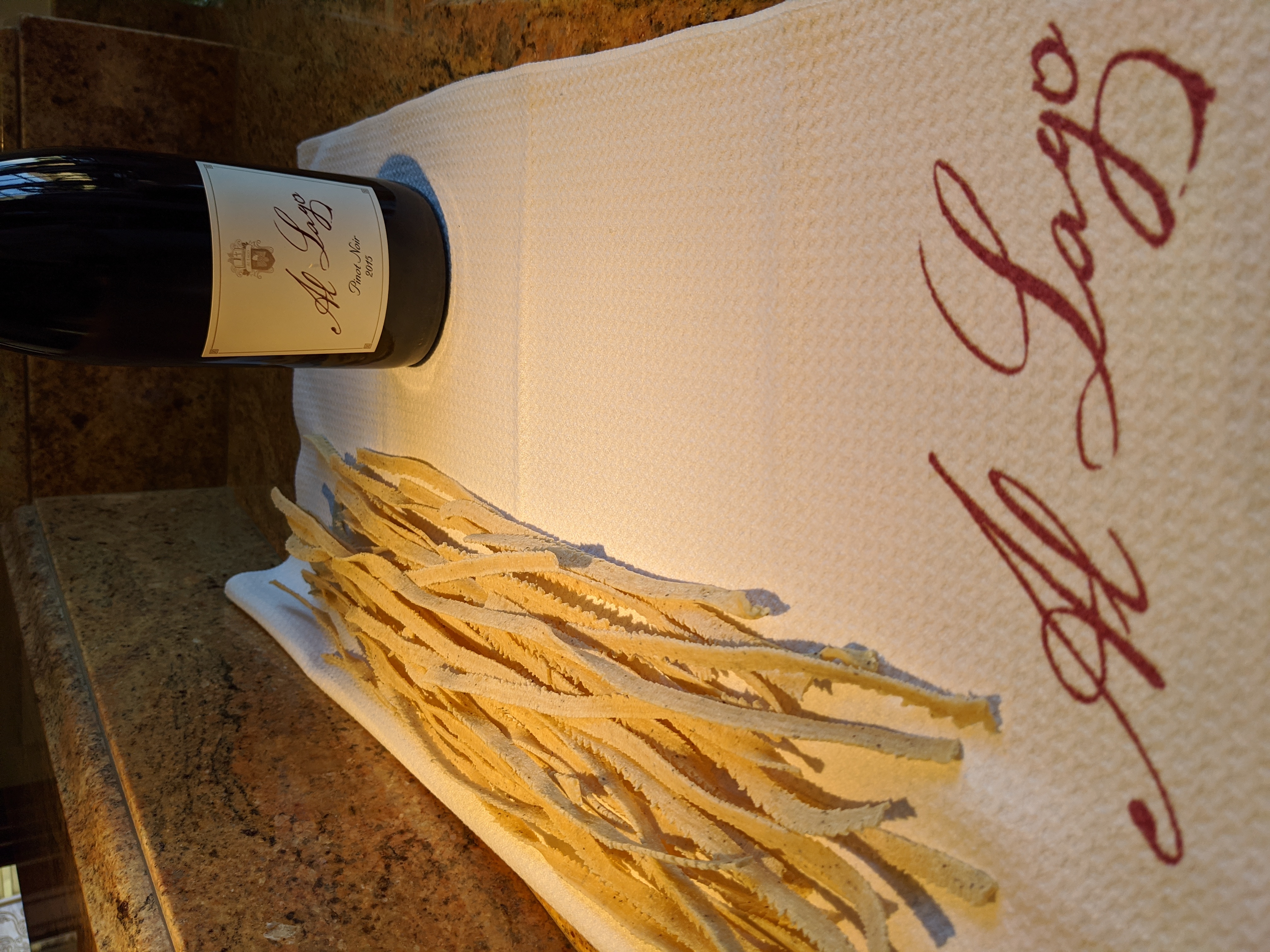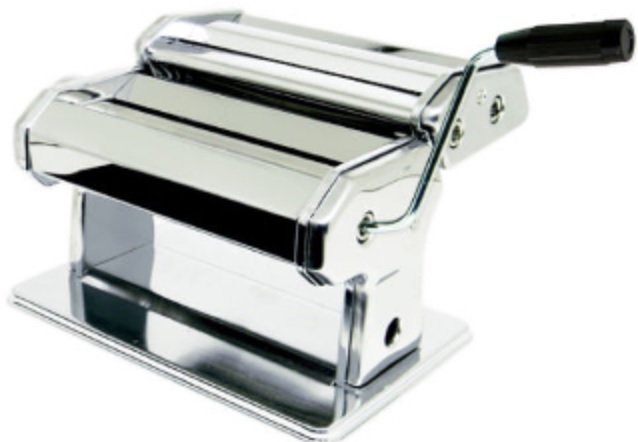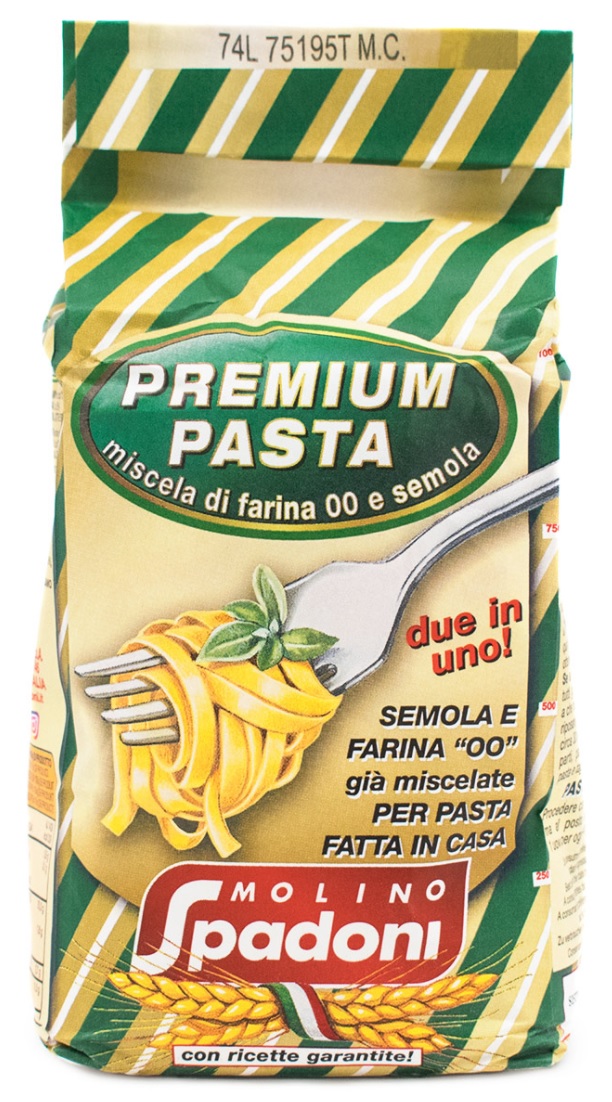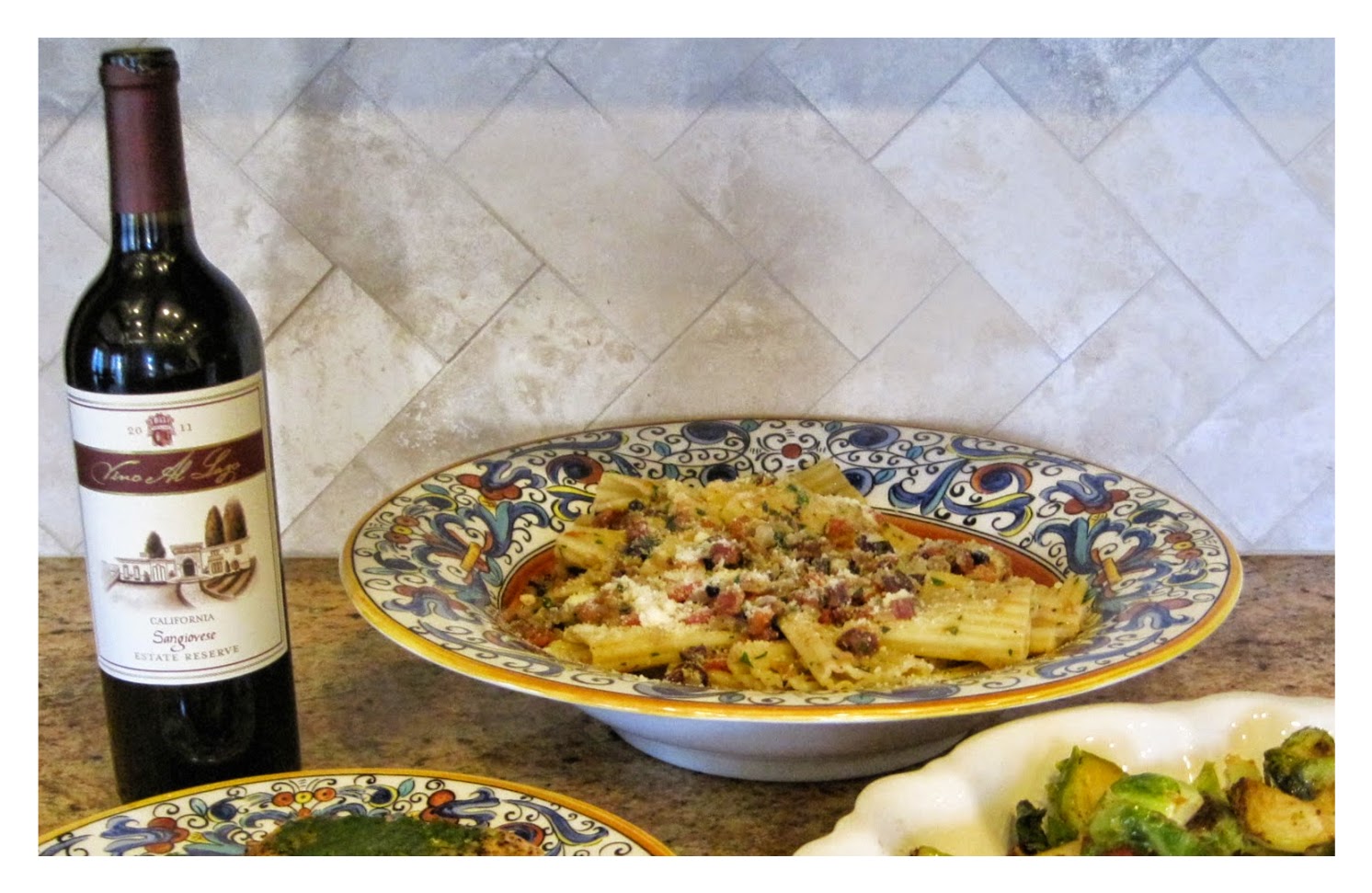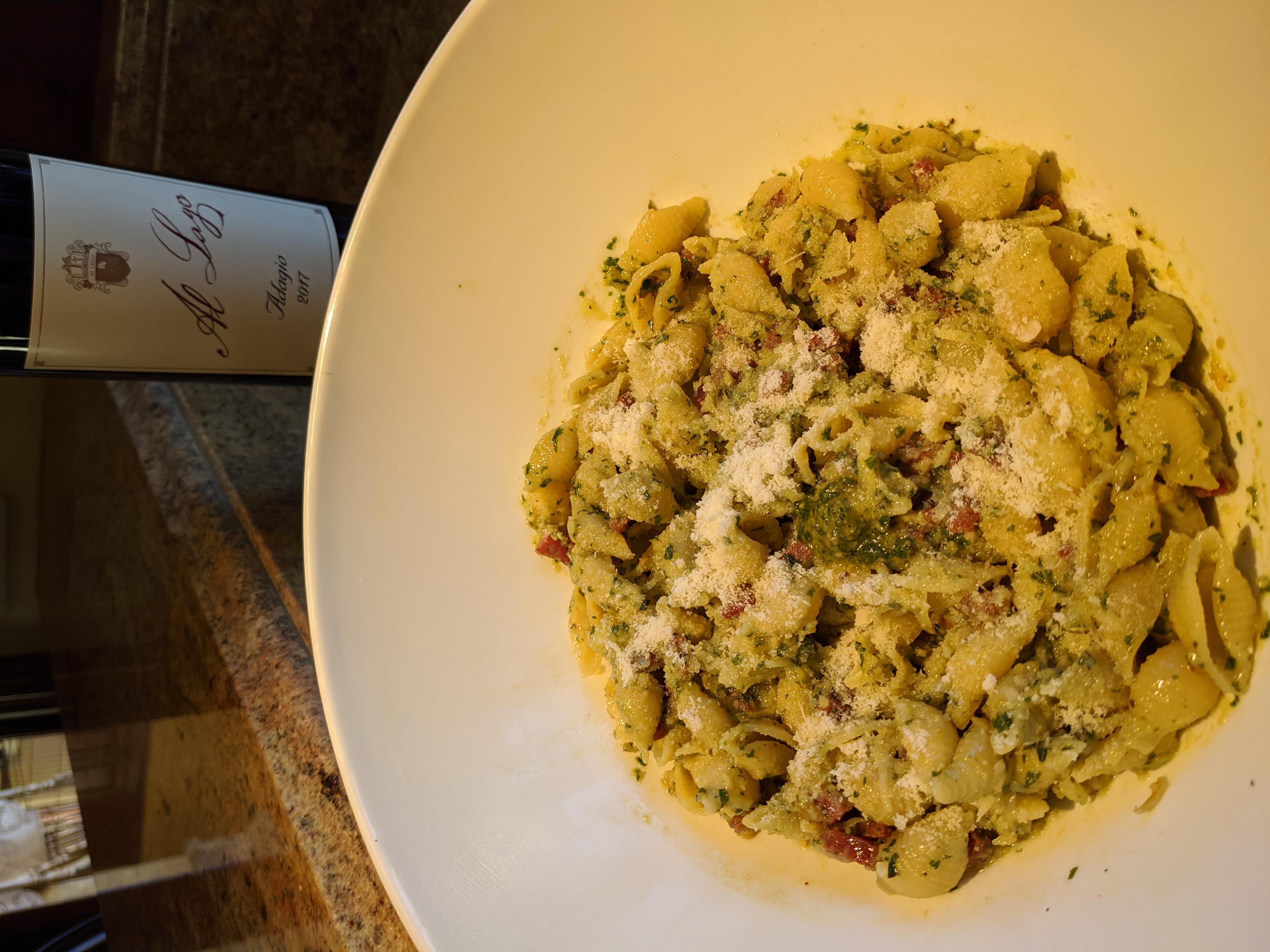Pasta Dough
Description
We really love pasta, especially when it is homemade! This recipe can be used to make many different shapes of pasta, and the pasta can be used with many different sauces. The options are unlimited!
At a Glance
Equipment
It is important to have a food processor as well as a hand-crank, pasta machine; we use a Perfecto Pasta Maker as one option.
Ingredients
1-½ cups of Semolina 00 flour
1-½ cups of All-Purpose Flour
3 Eggs, at room temperature and slightly beaten
¼ cup of Water
2 teaspoons of Extra-Virgin Olive Oil
½ teaspoon of Salt
Directions
Set up your food processor with the metal blade, and add the ingredients for the pasta into the bowl of the food processor. Pulse the ingredients several times until they are fully integrated. Remove the lid and make sure that any ingredients stuck to the sides of the bowl are scraped down. Put the lid back on and pulse the ingredients again until the dough forms a ball. At this point, it is important that the dough has the right consistency; it should be moist, but not sticky. If the dough is too wet, add some additional flour; alternatively, if it is too dry, gradually work in some water until you have the right consistency. Remove the dough from the food processor, dust with flour, and let rest under a slightly damp towel for about 10-15 minutes.
Once the dough has rested, cut the ball into ¼-inch thick slices. (Keep the dough that you are not using under the damp towel, so it doesn’t dry out.)
Set the regulator knob on your pasta machine to the widest, thickest setting. Take one of the dough slices and run it through the machine. Lightly dust the dough strip, fold it in half and pass it through the pasta machine, continue this process until the pasta is smooth. Set the dough strip aside, cover with a damp cloth, and continue the same process with the other slices of the dough.
When all of the strips have run through the machine and they have rested for another hour, lower the pasta machine thickness level by one level, and run all of the pasta strips through the machine. Lower the thickness level again by one, and run all the pasta strips through the machine again. Dust with flour as needed. Continue reducing the thickness level of the pasta until it gets to your desired thickness.
Cut the dough strips with a knife, if necessary, so that they are the length of the pasta that you want to ultimately have, and so they will be easier to handle. Then attach the noodle cutting head to your pasta machine, and set it to the cut of pasta that you desire. Slowly begin to feed your pasta strips through the machine and guide the pasta noodles as they are cut onto baking sheets (which you have lined with parchment paper or you can use kitchen towels). Make sure that the pasta noodles are arranged so that they are not touching and can dry slightly. Sprinkle lightly with flour. Let the dough dry for about 10 minutes before you cook it.
NOTE: Fresh pasta will cook much faster than dried pasta. The best way to cook the pasta is to start with a very large pot of salted water. Add about 2-3 tablespoons of salt to the water. Once the water is boiling, add the pasta. Carefully avoid “crowding” the pasta – it needs room in the pot. The length of time it will take to cook will depend on the thickness of the pasta and the shape of the pasta. Check it after 2-3 minutes and continue to check it every minute after that. Fresh pasta can easily become soggy and overcooked, so it is important to drain the pasta quickly and have it “al dente” as the Italians would describe it. It is far better to be a bit undercooked than over cooked.
Variations on the Pasta Dough:
There are times that we enjoy flavoring the pasta dough to add additional flavor to the final dish. Here are a few variations that we have enjoyed over the years, which all start with the recipe above:
Black Pepper Pasta (a favorite of our family):
Add between 2 teaspoons to 1 tablespoon of freshly ground black pepper to your pasta dough when you are making it.
Lemon Pasta:
Replace the water with lemon juice and add 1 tablespoon lemon zest
Tomato Pasta:
Cut the water in half and add 2 tablespoons of tomato paste to the dough.
Basil Pasta:
Replace the water with ¼ cup of fresh, minced basil.
Squid-Ink Pasta:
Replace 1 tablespoon of the water with squid ink.
There are many other options, but these are a few of our favorites.


